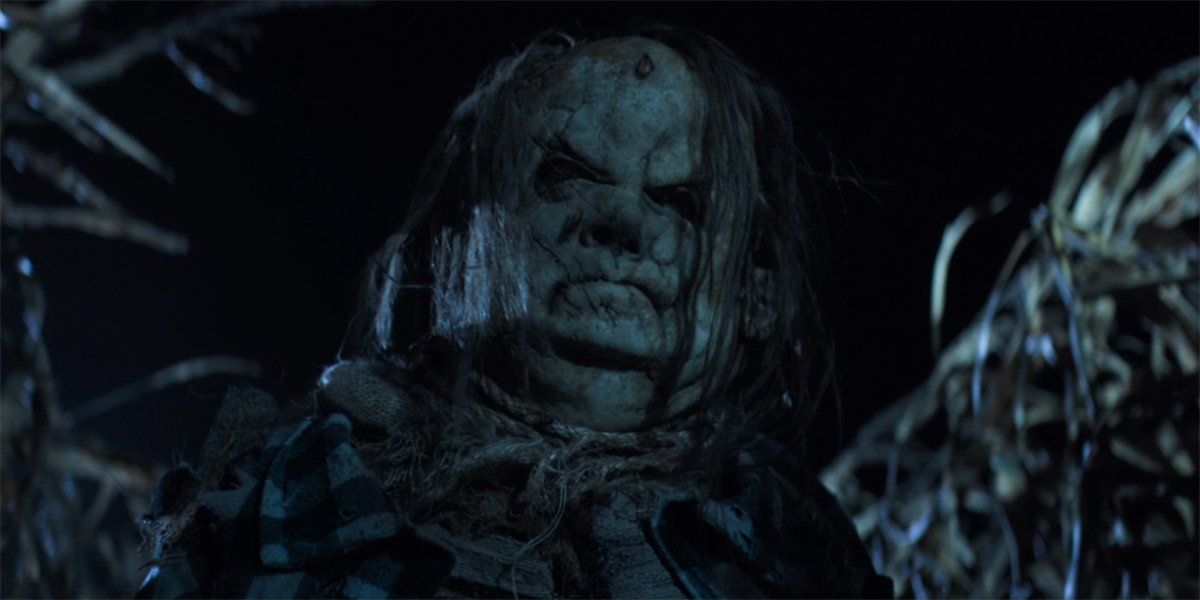Products You May Like
SPOILER WARNING: The following article contains spoilers for Scary Stories To Tell IN The Dark. If you have not yet seen the film, you may want to bookmark this article and save it until after your screening.
There are many challenges inherent in making horror movies aimed at younger audiences, but endings rank very high on the difficulty scale. In hopes of not traumatizing children or giving them insane nightmares, there are many stories that wind up softball-ing their third acts – often by bringing dead characters back to life. This is tricky territory, however, because while the move is understandable, it can also totally undercut stakes of the entire story. It was because of this that the ending of Scary Stories To Tell In The Dark was super important to writer/producer Guillermo del Toro.
In fact, it turns out that was one of del Toro’s primary demands when he was negotiating to work on the project that the characters – including children – who died in the narrative would stay dead even after the evil spirit was defeated.
I had the pleasure of sitting down with the Academy Award-winning filmmaker and director Andre Ovredal at the Los Angeles press day for Scary Stories To Tell In The Dark last week, and our conversation veered into spoiler territory when I brought up the non-resurrected characters. Having seen so many movies go the opposite direction, I was surprised to see the new movie commit to is fatalities, and I took the opportunity to ask about it – eliciting this response from del Toro:
In this conversation there are really three Scary Stories To Tell In The Dark characters that we are talking about: there’s Tommy (Austin Abrams), who is gruesomely turned into a scarecrow courtesy of Harold; plus Auggie (Gabriel Rush), who is dragged into darkness by the big toe-lacking corpse; and lastly Chuck (Austin Zajur), who is absorbed into the pale lady/dream monster.
The characters don’t simply pop up alive when Zoe Margaret Colletti’s Stella and Michael Garza’s Ramón stop the spirit of Sarah Bellows, and by doing so the movie makes you care that they were killed (well, maybe not Tommy, who is a total asshole, but definitely Auggie and Chuck).
Of course, an extra added benefit is that it provides a perfect story set up for a potential Scary Stories To Tell In The Dark 2 (which really should be called More Scary Stories to Tell in the Dark, just like the book sequel). Not only are there still many, many memorable horror shorts that weren’t adapted into the first movie, but Stella clearly isn’t giving up on the idea that Auggie and Chuck aren’t gone, and will continue to try and bring them back.
You can watch Guillermo del Toro and Andre Ovredal discuss the significance of not resurrecting dead characters, as well as their thoughts on what they’d like to do with a sequel, by clicking play on the video below!
As of right now we don’t actually know if a Scary Stories To Tell In The Dark sequel is going to come together, but in addition to there being plenty of narrative opportunity set up from the first film, it’s worth noting that the horror flick also just over-performed at the box office in its opening weekend. We have our fingers crossed.
